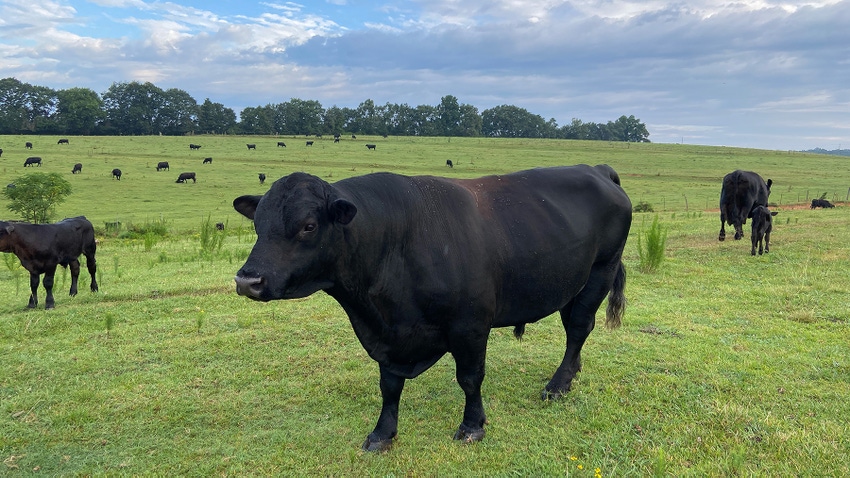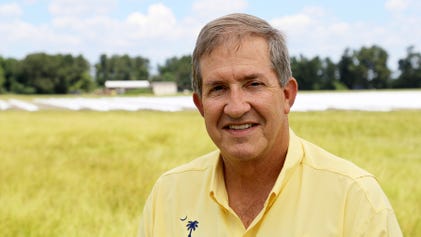
At a Glance
- Meat processing grants designed to expand processing capacity.
- ACRE designed to spur ag entrepreneurs.
Despite many ongoing challenges for South Carolina agriculture, the state’s agriculture commissioner, Hugh Weathers, remains optimistic about the future of farming and agribusiness in the Palmetto State.
In an interview with Southeast Farm Press, Weathers noted that labor ability, regulatory pressures, wild hog and deer pressure, farmland loss to urbanization and a host of other critical issues present challenges to farmers and the state’s agriculture industry. But he said South Carolina agriculture is primed for finding solutions.
Weathers said he would like to see continued growth in specialty crops such as sesame, which is now being produced on a small scale in South Carolina. But he also said there are no savior or panacea crops for South Carolina farmers.
“I don’t think there is one out there. Sesame is a nice addition to the crop mix, but I don’t see it becoming terribly significant. One of the motivations of growing it is that deer don’t like the taste of it. I would love to see more diversification in our fruit and vegetable sector,” Weathers said.
Still, the South Carolina Department of Agriculture has programs in place to further develop agriculture in the Palmetto State. Among them are meat processing grants and the Agribusiness Center for Research and Entrepreneurship (ACRE) that works to develop opportunities in agriculture, agricultural research, and entrepreneurship.
Earlier this year, SCDA awarded a total of $3,471,088 in matching grant funding to eight South Carolina companies to help them expand their beef processing capacity through the meat processing grants. Weathers believes the grants will help strengthen South Carolina’s beef cattle industry.
“Beef farmers across the state have said we will grow more animals up to processing weight if we alleviate the log jam in processing. We have put $3.5 million in grants to eight smaller processors. When they have finished their expansion plans, we will have a 9,000-cow increase in capacity. You simply take the value of a cow at 1,200 pounds for processing versus 500 or 600 pounds for feeder cows going out west, those dollars times 9,000 cows stay in South Carolina,” Weathers said.
With an estimated economic impact of $3,500 per head, the expansions will keep approximately $29 million of economic activity in South Carolina that would otherwise have gone out of state, according to an SCDA news release.
Meanwhile, Weathers believes ACRE will help expand South Carolina agriculture and agribusiness, and with that expansion, create more agriculture commerce in South Carolina. SCDA founded ACRE in 2018 to help identify and nurture new ideas and businesses in the state’s agribusiness sector.
“This is a significant agribusiness development fund wherein we can work alongside South Carolina farmers and agribusiness people who want to, and in that expansion, create more agricultural commerce. More acres, more higher value crops, more livestock, more seafood, more fruits and vegetables, more fresh cut flowers, you name it,” Weathers said.
Through it all, Weathers said South Carolina is on the right track. He pointed out that an agribusiness impact study shows that “just short of $52 billion is added to South Carolina’s economy because we grow stuff.”
“Those dollars are in South Carolina because we grow and process and distribute and deliver food, fiber and fuel. With this agribusiness development fund, we think we can add significantly to the economic value of South Carolina agribusiness. And no matter how our economy grows, by manufacturing, or tourism or agriculture, it benefits our state,” Weathers said.
“I think the message that agriculture is a viable player, a viable contributor to the quality of life in South Carolina for all of us, that message has gotten through. Our next challenge is growing the industry to the next level, whatever the next level is.”
In short, Weathers is optimistic about the future of South Carolina agriculture.
“We are a resilient group. We have to find those who are willing to take the risks to step out and add something new to the mix, so given that agriculture has always risen to the challenge, I generally stay optimistic about our future.”

Hugh Weathers is optimistic about the future of South Carolina agriculture. (PHOTO: SCDA)
About the Author(s)
You May Also Like






